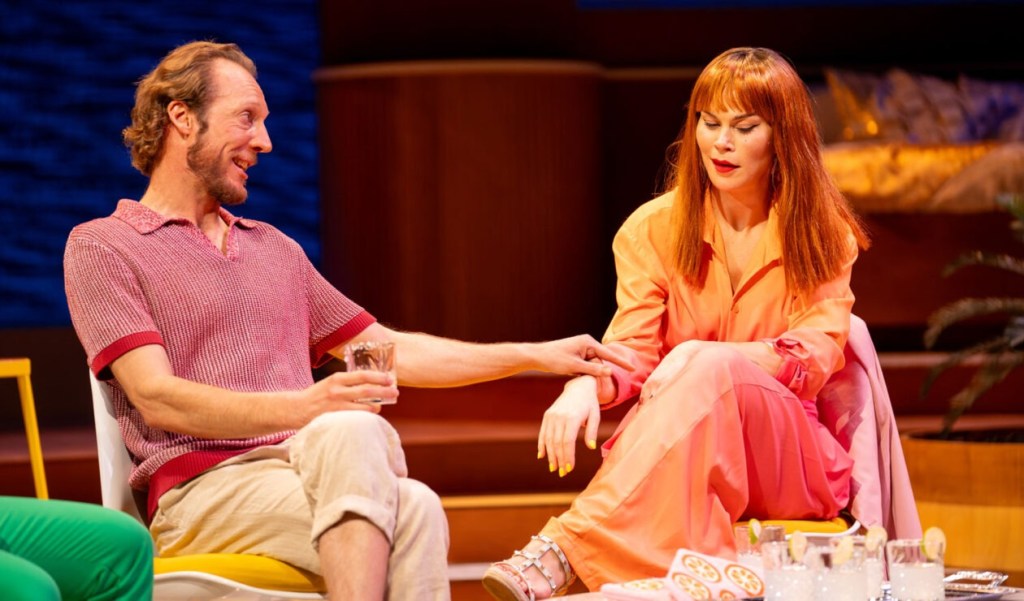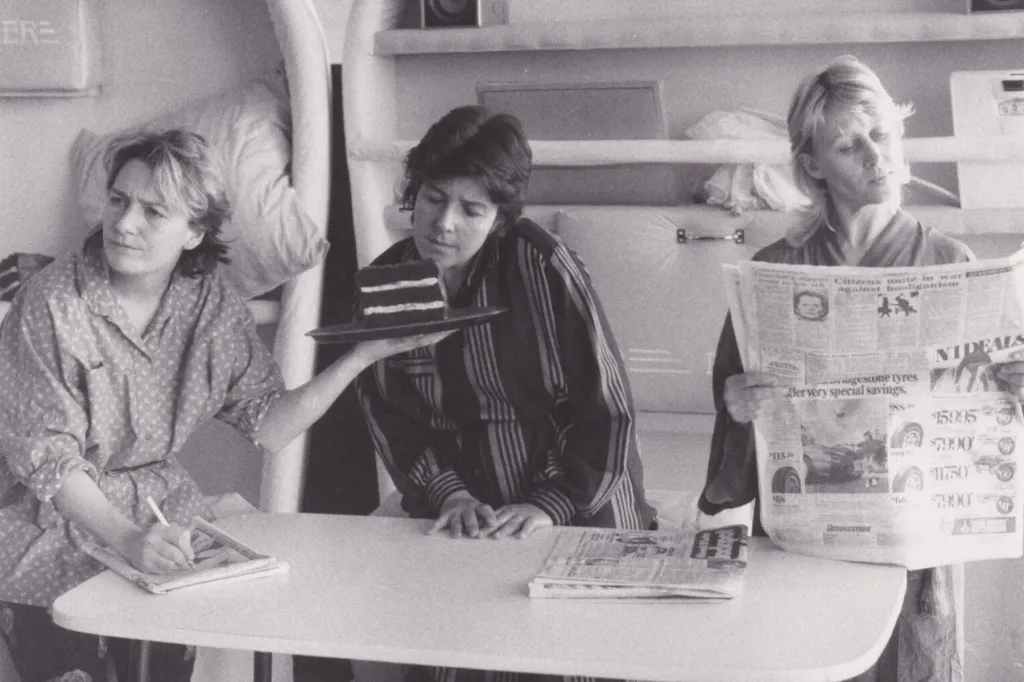Theatre review: The Puzzle
Libidinal energy, jealousy and margaritas abound in David Williamson’s new comedy The Puzzle, but it may leave you wanting more.

David Williamson’s The Puzzle presents two self-obsessed, middle-aged professional couples embarking on a “lifestyle cruise” (read: swingers’ cruise) to rejuvenate that fading neurochemical spark. These couples find themselves tormented by their own notions of what good sex means in their relationships, and the clashing of values, jealousy, and bodies that result from the unique setting where a good time is always on the cards – or in this case, on the puzzle pieces.
Amid the swingers are hapless, conservative father Drew (Erik Thompson) and his sex-positive 20-something daughter Cassie (Ahunim Abebe). Drew thinks he booked a cultural cruise, but the chance for him to play a fish-out-of-water as he uncovers the truth of his environment (à la Peter Sellers in The Party) quickly dissipates in the opening scenes.
Williamson – whose new play is being presented by the State Theatre Company of South Australia, which also commissioned him to write The Department for the opening of the Dunstan Playhouse 50 years ago – attracts an almost mythical status among Australian playwrights, not least for his prolific career, commercial success, and biting social critique. His plays from the 1970s and their film adaptations are often prescribed reading in drama studies, and are quintessential for understanding the subterranean grotesque of the Australian psyche. In The Puzzle, however, Williamson seems to pull his punches – being tame in his social satire, and demure in his depiction of sex.
Some of the production’s stronger moments are when it best utilises designer Alisa Paterson’s impeccably accurate depiction of a cruise ship and allows the swinging couples – Mandy (Ansuya Nathan) and Craig (Nathan O’Keefe), Brian (Chris Asimos) and Michele (Anna Lindner) – to play, flirt and taunt each other across the multi-room playing space. Their movements become an analogy for their middle-aged angst, chasing excitement, and hoping there might still be more to their lives.
Additionally, a group scene which depicts the sexual-diary meeting between the two couples has a sharp satirical edge, and the performers – well-directed by Shannon Rush – deftly navigate the internal lives and desires of Mandy, Craig, Brian and Michele. A funk-guitar laden soundtrack evocative of a 1970s porno permeates the work, and hints at how outlandish the piece could have been.

Ansuya Nathan and Erik Thomson in The Puzzle. Photo: Matt Byrne / supplied
However, the characters are just all a little too sympathetic. The Puzzle doesn’t have enough of the intense sardonic cringe of the satirical black comedy film Triangle of Sadness, nor the sheer danger and alcoholic anarchy of Williamson’s 1971 lacerating class critique Don’s Party (both quoted in the marketing).
Abebe, Asimos, Lindner, Nathan, O’Keefe and Thomson play their characters with rich internal lives, but it feels like they aren’t given a chance to fully be exposed or vulnerable to the unfolding interpersonal catastrophe.
Some of the deeper questions of the work are delved into briefly in a scene between Cassie and Drew in the second act. After Cassie reveals to her father that she happily lives within a polycule, she delightfully mentions she’s been given the opportunity to make $10,000 by having sex with Brian. Drew, horrified, tries to make her reconsider, but Cassie laments that her generation has not much to look forward to other than cutthroat corporate culture, climate change, and gig work, so they might as well have a bit of fun along the way.
Subscribe for updates
It is an apt piece of dialogue that explores the current trends in sexuality, where patriarchal conservative norms have been superseded by a liberated, sex-positive, but perhaps more transactional sexual politics. The generational divide is briefly laid bare here, and Abebe skilfully plays the bemused nihilism of Gen Z. It is perhaps the most challenging moment in the piece.
The Puzzle takes on many themes – middle-aged angst, the role of sex in our lives, and the trials and tribulations of cruise holidays – yet it doesn’t reach the raucous heights of a pure sex comedy, nor the biting social critique found in many of Williamson’s works. If you’re left wanting more, perhaps you need to book a lifestyle cruise.
State Theatre Company of South Australia is presenting The Puzzle at the Dunstan Playhouse until October 12.

